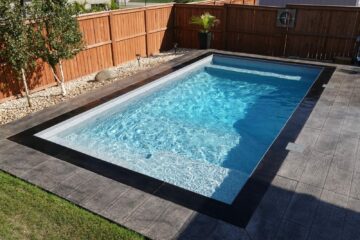
As you or your loved ones age, it may become more difficult to perform certain daily tasks, and assistance or prompting may be required in order to complete them. This is where the many senior living options come in. There are plenty to choose from, and it is important to select the option that is right for you. They are incredibly common, and the vast range of options means that you can find a community that can tailor the support and care you or your loved ones receive, to ensure that they are happy, healthy, and supported in the best way possible. Here are just a few of the questions to ask when considering senior living options.
What is senior living?
In short, senior living comprises of many different types of senior care and housing. In the US, nearly 7% of older adults need help from another person for their personal care, so senior living options are incredibly common. There are thousands of different communities and facilities across the US, which means that you and your loved ones can find the perfect fit.
Many communities, such as Frontier Senior Living, offer a variety of types and levels of care and living, from independent living to memory care. They pride themselves on offering support and care that puts their residents’ independence, autonomy, and dignity at the forefront of everything they do. They work to increase and maintain the quality of life of their residents with high-quality medical and personal care and support. There are also plenty of social activities and events that highlight the community feel and encourage socialization.
What are the options?
There are many different options when it comes to senior living, and consulting a specialist for an assessment will help you to understand what level of care would best benefit you or your loved one. There is no one size fits all solution, as everyone ages differently and it affects them in different ways. Here are just a few of the senior living options that exist:
Memory care- this is a form of senior living specifically for those individuals with Alzheimer’s, Dementia, or other types of memory-related illness. The residents live in a safe and secure environment and receive support and care from specialized staff. At Frontier, there is also a focus on developing and maintaining cognitive functions and providing a structure that supports the retention of memory.
Assisted Living- in an assisted living community, residents have their own private room, and receive care and support from staff. This can come in many forms, both medical and personal, including medication management, housekeeping and personal care. Again, there is an emphasis on maintaining the independence and dignity of the residents as much as possible, with care and support being provided when it is needed.
Independent Living- residents can live in resort-like communities, with private rooms and sometimes even their own kitchens. They are surrounded by like-minded individuals in a social environment that offers almost the same levels of freedom and independence that they would experience outside of the facility. Care and support are available when they are required, and there are plenty of social activities and events to take part in.
Respite Care- if you are a home caregiver, you may sometimes find yourself in need of a break. Respite care is a short-term stay in a senior living community that allows the home carer to take a break and spend some time off. Whether this is resting, running errands, or going on vacation, you can relax whilst being comfortable in the knowledge that your loved one is being cared for and supported in a senior living community. Respite care is also a great way to explore the senior living options and communities that are available to you, and can help you, and your loved one make decisions in the future if further care is required.
Who are they for?
Different options and levels of care work for different individuals. It is important to get an assessment from a physician or adult care social worker to make sure you are informed. They can give you all the information you require, answer any questions you have and suggest the most appropriate level of care. There are a lot of factors that affect this assessment, such as physical and mental health, as well as self-sufficiency and how well an individual can live on their own.
As you age, it can be harder to complete certain daily tasks, such as cooking or bathing. You may need help doing them, or prompting to remind you to complete them. ADLs, or Activities of Daily Living, are six self-care tasks that the majority of people can complete independently. They are:
- Bathing
- Eating
- Moving
- Dressing
- Toileting
- Continence
These six tasks are used to help a specialist assess how well an individual can live on their own. The fewer tasks that can be completed independently, the higher the level of outside care and support a person needs. A further eight tasks, called Instrumental Activities of Daily Living, are also used to further make this assessment, as well as highlighting disabilities that the ADLs may miss. The IADLs are:
- Using the telephone
- Driving/using public transport
- Food preparation
- Shopping
- Housekeeping
- Laundering clothes
- Managing finances
- Managing medication
These factors, combined with others, will help a specialist assess the best senior living option for you or your loved one. Many people decide to care for their loved ones at home, either themselves or by using a home carer. However, this may not be possible for many reasons, or the level of care and support that an individual requires is more than what can be achieved at home. This is when senior living options come in. There are so many different options available, and you will be able to find something that works for you and your loved one. It is important to consult a specialist, as they will have plenty of experience and will be able to offer you the best and most up to date information.










